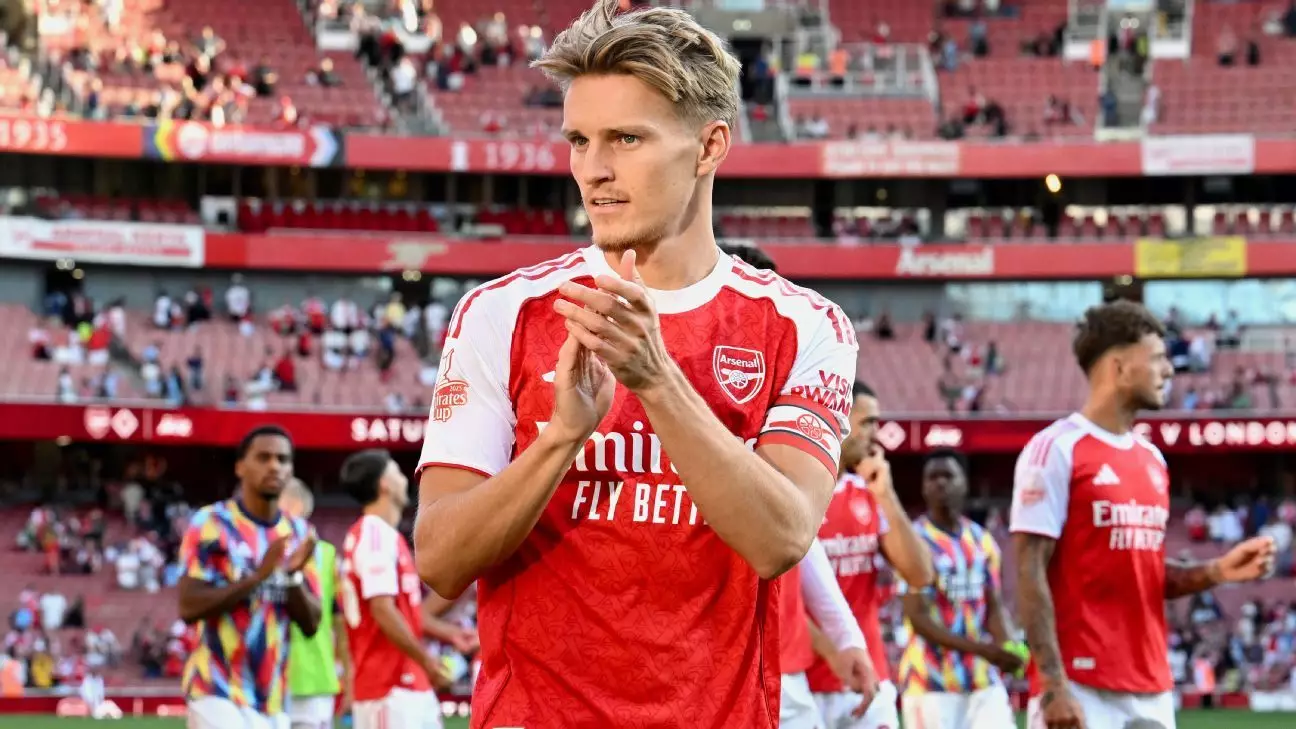Leadership within a football squad is more than symbolic; it is the heartbeat of team cohesion and performance. When Mikel Arteta reaffirmed Martin Ødegaard’s captaincy amid criticism, it was a decisive stance rooted in both player preference and strategic conviction. The captain’s role extends beyond on-field commands; it embodies accountability, motivation, and representation — qualities that transcend mere tradition. Arteta’s choice suggests a belief that Ødegaard’s influence resonates authentically within the squad, reinforcing that leadership credibility isn’t handed down via hierarchy but earned and validated by peers.
This stance invites us to question traditional notions of leadership assigned based on experience or reputation. In a modern, fast-evolving game, what truly makes a captain effective? Is it their voice or their ability to inspire trust? Arteta’s transparent voting process underscores a democratic approach, emphasizing that collective endorsement outweighs authority vested from outside. The players, by overwhelmingly selecting Ødegaard, demonstrated their confidence in his capacity to steer the ship — a sign that leadership must be rooted in authentic respect and rapport.
Contested Leadership: Is Duality or Clarity the Key?
Historically, leadership structures in football often involve multiple figures — a captain, vice-captain, and an informal leadership group. Tony Adams’ critique, suggesting Declan Rice might be a better fit, reflects a traditional perspective emphasizing vocal dominance, stature, or experience. Yet, Arteta’s defense hints at a different philosophy: leadership isn’t solely about loud authority or seniority but about the collective feeling of those who perform alongside the captain.
While Adams’ criticism is rooted in a desire for better results and maybe a more hierarchical approach, it neglects the importance of squad harmony and internal consensus. Arteta’s stance underlines a forward-thinking belief: effective leadership is determined by the team’s perception, not just external archetypes. Instead of a power shift, Arsenal appears to prioritize stability and a unified vision—a decision that might prove wiser than fleeting headlines suggesting a leadership reboot.
It’s worth noting that leadership isn’t a static trait but a dynamic relationship. Arteta’s choice indicates a preference for continuity and trust, rather than reactive changes based on outsider opinions. Whether this approach will translate into tangible success remains to be seen, but it undeniably reflects a modern understanding that leadership is fundamentally about connection, not title.
Discipline and Rule Enforcement: Navigating the Fine Line
The controversy surrounding the new regulations on time-wasting and misconduct further complicates Arsenal’s season. Arteta’s comments reveal an awareness of the delicate balance between assertive enforcement and tactical patience. Last season’s punitive measures, especially the quick dismissals of Rice and Trossard, showcase a league trying to curb antics that disrupt the game’s flow.
Arteta’s optimism about more consistent implementation indicates a hope for fairness that benefits the quality of football rather than extraneous disciplinary action. His emphasis on communication with referees, player education, and data-driven assessments reveals a strategic approach that extends beyond mere compliance; it’s about fostering a culture that respects the rules while maintaining the spirit of competition.
However, such initiatives demand collective accountability from players, coaches, and officials alike. As Arsenal navigates this transition, their approach could either serve as a blueprint for fair play or risk undermining their authority if inconsistencies persist. Arteta’s leadership in this aspect underscores his broader philosophy: responsible discipline and strategic adaptability are integral to staying atop a fiercely competitive league.
The Broader Implications: Why Confidence in Leadership and Rules Matter
Ultimately, Arteta’s unwavering support for Ødegaard and the optimism about regulatory enforcement reflect a broader conviction: sustained success hinges on internal stability and consistent standards. In modern football, quick fixes or reactive leadership changes often lead to fragmentations rather than progress. By trusting his squad’s judgment and aligning disciplinary policies with shared understanding, Arteta demonstrates that confidence — both in players and protocols — is essential.
This approach also signals a subtle resistance to external noise and critics who may favor more traditional leadership models or harsher disciplinary measures. It’s a declaration that Arsenal aims to build a resilient, cohesive team, rooted in mutual trust and clear expectations. Whether this philosophy will yield titles remains uncertain, but its grounding in collective confidence and strategic patience reflects a deep, insightful understanding of what it takes to excel in today’s high-stakes environment.
In the end, Arsenal’s leadership, discipline, and internal cohesion will be their defining traits this season. Arteta’s decisions—firm yet open, cautious yet confident—highlight a nuanced view that progress is rooted not just in individual brilliance but in the collective spirit that propels a team forward.

